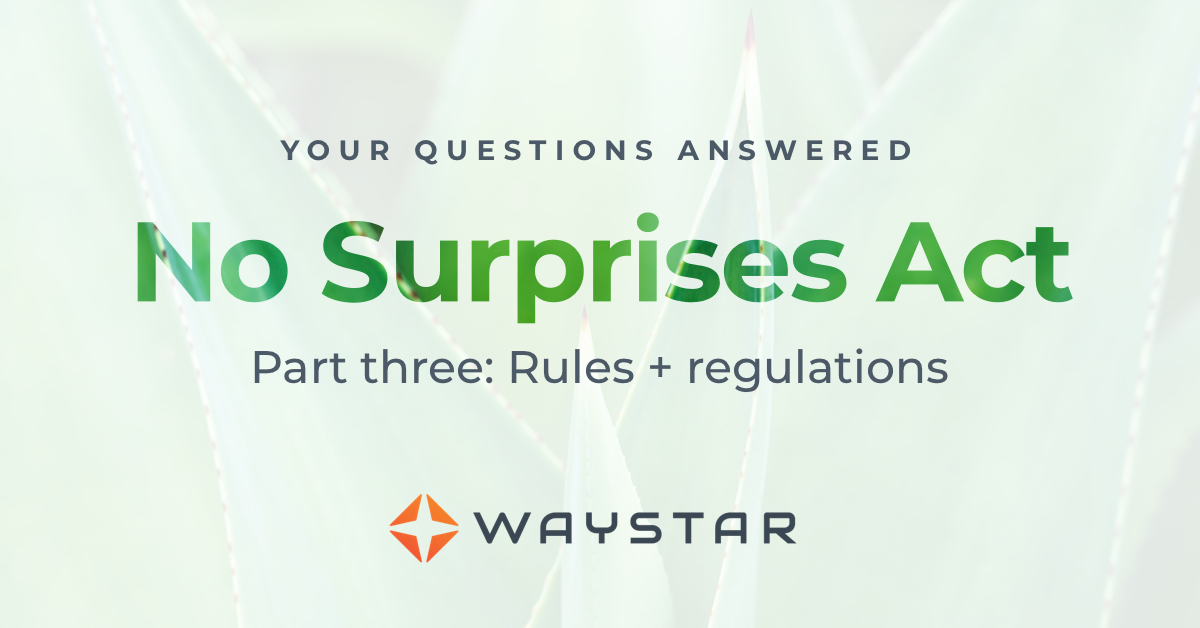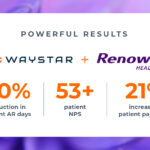
Waystar has been delving into the No Surprises Act, from Good Faith Estimates to out-of-network services.
When it comes to maintaining compliance, we know there can be many cloudy situations. To cut through the confusion, our experts are answering tough questions about the No Surprises Act to help providers like you.
Whether it’s defining the role of a convening provider or how a patient dispute surfaces, count on Waystar to cover it all. Remember, always consult with your legal team, compliance department, or trade association if you have specific questions as to how the No Surprises Act requirements pertain to your organization.
What is an example of short-term limited duration insurance?
An example of a short-term insurance policy is sold under Golden Rule, one of several different policies by UnitedHealthcare. These policies are available in certain states and allow a consumer to purchase a policy for a temporary period of time, such as 60, 120, or even 180 days.
As standard consent forms do not currently specify the NSA, are convening providers required to include this language with consent forms now, post-implementation of the NSA?
Yes, however, HHS instructs providers that the information, patient rights and consent must be separate from other provider-specific documents.
For information on document for consent form requirements, please refer to this CMS document or email provider_enforcement@cms.hhs.gov with any questions.
What happens if an office has a disagreement as to whether the NSA applies and thinks it only impacts facilities and ambulances?
The No Surprises Act applies to all providers. However, not all aspects of the No Surprises Act apply to all providers. No providers are exempt from providing Good Faith Estimates, except for ground ambulance services.
For more information, please refer to this CMS document or email provider_enforcement@cms.hhs.gov with any questions.
Will CMS enforce the requirement that Good Faith Estimates for uninsured or self-pay individuals include cost estimates from co-providers and co-facilities beginning on January 1, 2023?
No. The original requirement for enforcement was set to go into effect on January 1, 2023. However, the U.S. Department of Health and Human Services (HHS) has indicated that compliance “is likely not possible” by this date. Therefore, HHS is extending the enforcement provisions timeline, pending future rulemaking.
For more information, please refer to this CMS document, email provider_enforcement@cms.hhs.gov with any questions, or refer to our Good Faith Estimates blog.
What happens if a hospital doesn’t think the No Surprises Act applies to them?
Other than reaching out to the hospital’s legal representation, providers can contact industry trade associations, such as the American Hospital Association, for insight and guidance. Providers can also contact CMS directly for questions. Providers should also visit the CMS education and learning site for information about the No Surprises Act and scope of provider responsibilities.
For more insight, refer to the CMS overview of rules and facts about the No Surprises Act. Providers can also reach out to CMS directly at provider_enforcement@cms.hhs.gov with any questions.
How would a provider be notified if a patient disputes?
CMS will send a letter to the provider.
For more information on this process, please refer to the CMS website or reach out to CMS directly at provider_enforcement@cms.hhs.gov with any questions.
Who would be the convening provider in this scenario?
A patient goes to see a general surgeon in a medical office building. The doctor tells the patient they need to have surgery and wants the procedure scheduled and performed at a local hospital.
Is the hospital or general surgeon the convening provider? The physician’s office would send the order to the hospital, but the hospital is the one that schedules the procedure.
The role of the convening provider should be confirmed with the hospital. However, most providers consider the facility or hospital to be the convening provider. The surgeon (if not employed by the facility) should provide the facility or hospital with the expected charges for the scheduled procedure.
If a patient has multiple visits, do they need to be given notices (not the Good Faith Estimate) for each visit?
If a patient will be “scheduled” with multiple visits to an out-of-network provider, those dates and estimated out-of-network cost should be included in the notice and consent form. The form does not limit users to a single visit, providers can add additional dates of services.
For more information, providers can refer to the CMS standard notice and consent form or CMS FAQ document.
If a patient is the non-prevailing party, would they dispute a balance with the payer or do it directly, paying the IDR administration or certified entity fee?
If a patient gets an adverse determination of benefits (OON) and believes it meets the criteria for the NSA, the patient can appeal to the insurance company and/or the IDR. The patient can also advise the provider who can also appeal the decision to the payer.
For more information, refer to CMS documentation for patients or providers.
Feel confident + stay in compliance
Arming your team with the right information is the first step to success. Use these insights so you can make sure you are maintaining compliance with all the rules and regulations of the No Surprises Act.
When a question or concern arises, contact your legal team, compliance department or trade association. You can also get specific information for your organization’s situation by reaching out to CMS directly at provider_enforcement@cms.hhs.gov.
Find this post helpful? Better understand the No Surprises Act and out-of-network services.






